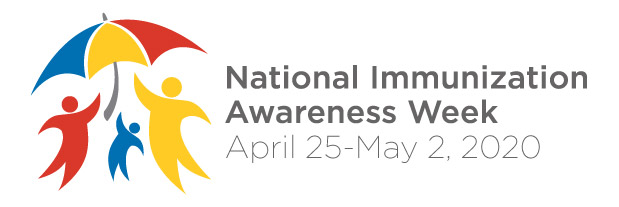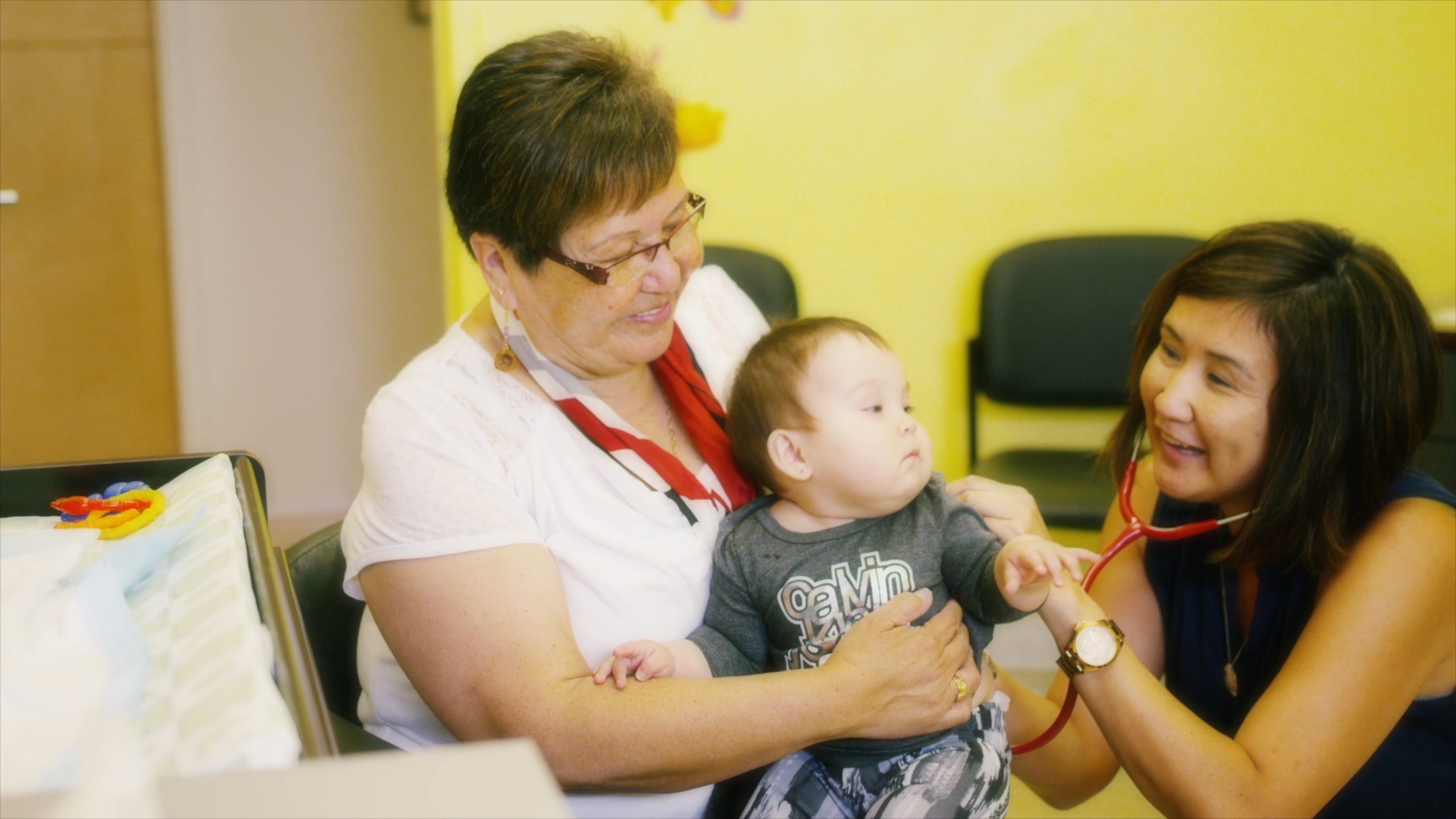
During the pandemic, do keep childhood immunizations up to date: Vaccinations are as important as ever!

A message from Dr. Helena Swinkels, FNHA Office of the Chief Medical Officer

Marking National Immunization Awareness Week in the middle of a pandemic provides the opportunity to reflect on both the importance of developing a vaccine to help us manage COVID-19 and the importance of keeping regular childhood immunizations up to date to ensure protection from other diseases.
The good news in this situation is the incredible global collaboration underway to find a critical COVID-19 vaccine. More than 100 vaccines are in development, with many countries sharing research to find a vaccine that will save the lives of our mothers and fathers, sisters and brothers, Elders and children. We have good reason to believe that these efforts will succeed, and the FNHA is already working with other public health agencies to ensure the new vaccine will be available to First Nations people in BC.
Meanwhile, we must remember that existing vaccines have already saved countless lives from other diseases, and continue to do so. With all the new rules about staying at home because of the pandemic, you may be wondering if you should be continuing with your child's regular immunization schedule. The short answer to this question is, “YES!"
The safe, continuous delivery of regular immunization programs is an essential service, even during the pandemic – perhaps even more so. Immunizations are an important part of protecting people, and in particular infants and young children, from infectious, vaccine-preventable diseases such as measles.
Vaccines are very safe and effective. In Canada, we have high standards for vaccine development, safety and testing, and strong health systems to oversee and monitor vaccines used in immunization programs. Be assured that immunization clinics remain open, with some new rules in place to keep you, your children and health care workers safe. These include having only one adult accompany the child, not coming in if you're sick, and practising physical distancing. You can call ahead to your health care provider if you have questions.
I am impressed by the collective strength and resilience shown by Indigenous community leaders and members as they work to stop the spread of the Covid-19 in Indigenous communities. I encourage everyone to keep up the important actions you are already doing to keep yourself, your family, Elders, and the rest of the community safe and well at this time: washing your hands thoroughly, keeping at least six feet / two metres apart, spending time only with those in your household, avoiding gatherings of any size, and importantly, connecting with the land and culture, sometimes in creative ways, to maintain mental and physical wellness.
I hope this message will encourage those of you who are parents and guardians of young children to make sure they receive all their scheduled vaccines on time. In the words of the provincial health officer, Dr. Bonnie Henry, “Keep safe, keep calm and carry on immunizing!"
Answers to your questions about vaccinations:
Q: Are there reasons that keeping kids' immunizations up to date is even more important right now?
Keeping immunizations up to date is always important to protect your child. Immunizations are safe, effective, and have been carefully scheduled to protect your child at the earliest age possible, with the fewest shots possible.
Immunizing your child is also an important part of “community immunity," protecting not only your child, but also children and others who may not be able to get vaccinated. And right now, with the global pandemic, we want to be extra sure that we prevent other outbreaks in the community.
Q: Are vaccines safe?
A: Yes! Vaccines are some of the most carefully tested products used in health care and are very safe for children with healthy immune systems. Understandably parents are concerned about possible side effects from vaccines. Most side effects from vaccines are minor, if they occur at all. The area where the shot was given may be sore for a short time. And some children may be fussy or get a slight fever. Serious side effects are very rare. It's much more dangerous to risk getting the diseases than to risk having a serious reaction to the vaccines. This is true even if a parent had a reaction, as reactions to vaccines are not hereditary.
Q: How do we know vaccines are safe?
A: Vaccines must go through years of research, followed by testing and re-testing, before they can be used in Canada. Several systems are in place to monitor the creation, use, and safety of vaccines. Each vaccine must be proven to be safe and to work before it can be given. If these systems flag that a vaccine is frequently associated with even minor adverse reactions, an alternative vaccine will be used. An example of this is the vaccine for pertussis (also known as whooping cough), a deadly disease. For some time, the only vaccine available to protect against pertussis was associated with minor adverse reactions such as redness and swelling at the site of injection, along with fever and agitation. Because of this, a different kind of pertussis vaccine was developed and is used today instead.
Q: Why do some parents ask for “alternative schedules" for immunizing their child?
A: Parents are always looking for ways to do the best thing for their children and with all the misinformation out there, it is understandable that parents may be concerned about receiving a number of shots at one time. But it is important to keep to the schedule recommended by experts! This schedule is designed to work best with a child's immune system at certain ages and at certain times, providing the best protection possible at the earliest age and with the fewest shots. Experts review the schedules based on the best research available and change the schedules as needed. A different schedule may not provide protection for your child. If shots are spread out or skipped, a child may get the disease during the delay. Some vaccines are given together to protect against several diseases at once. Your child's immune system is amazing! It can easily handle more than one vaccine at a time safely and effectively. Babies have the capacity to produce up to one billion antibodies.
Q: If herd immunity works, why do I need to get immunized? Doesn't “herd immunity" protect me, or my child?
A: For many diseases, children are at the highest risk of the disease and also have the most severe illness. The best way to protect someone against a disease is to vaccinate them directly, rather than rely on “indirect" protection through herd immunity. If someone who is unvaccinated does meet the germ responsible for that disease they will be completely at risk of getting the disease.
Further, a high percentage of immune people in the community is necessary: if a percentage of people are not immunized, herd immunity is lost and the unimmunized are at risk. Herd immunity only works for diseases that are spread directly between people (i.e., are “contagious"), like measles. One example where it would not work is tetanus. The bacteria that cause tetanus lives in the soil, so anyone who is not vaccinated would be at risk and could easily be infected if they were exposed to bacteria in the soil, such as through a dirty wound, even if everyone else around them was vaccinated and protected.
For more information, see this video.
Resources
• ImmunizeBC: Vaccine safety
Information about vaccine safety.
• HealthLink BC: Questions parents ask about immunizations
Common questions parents ask about child immunizations.
• Caring for Kids: Information for parents from Canada's pediatricians
Vaccine safety information for parents.
• Government of Canada: Immunization and vaccines
Answers to frequently asked questions about vaccine safety.

